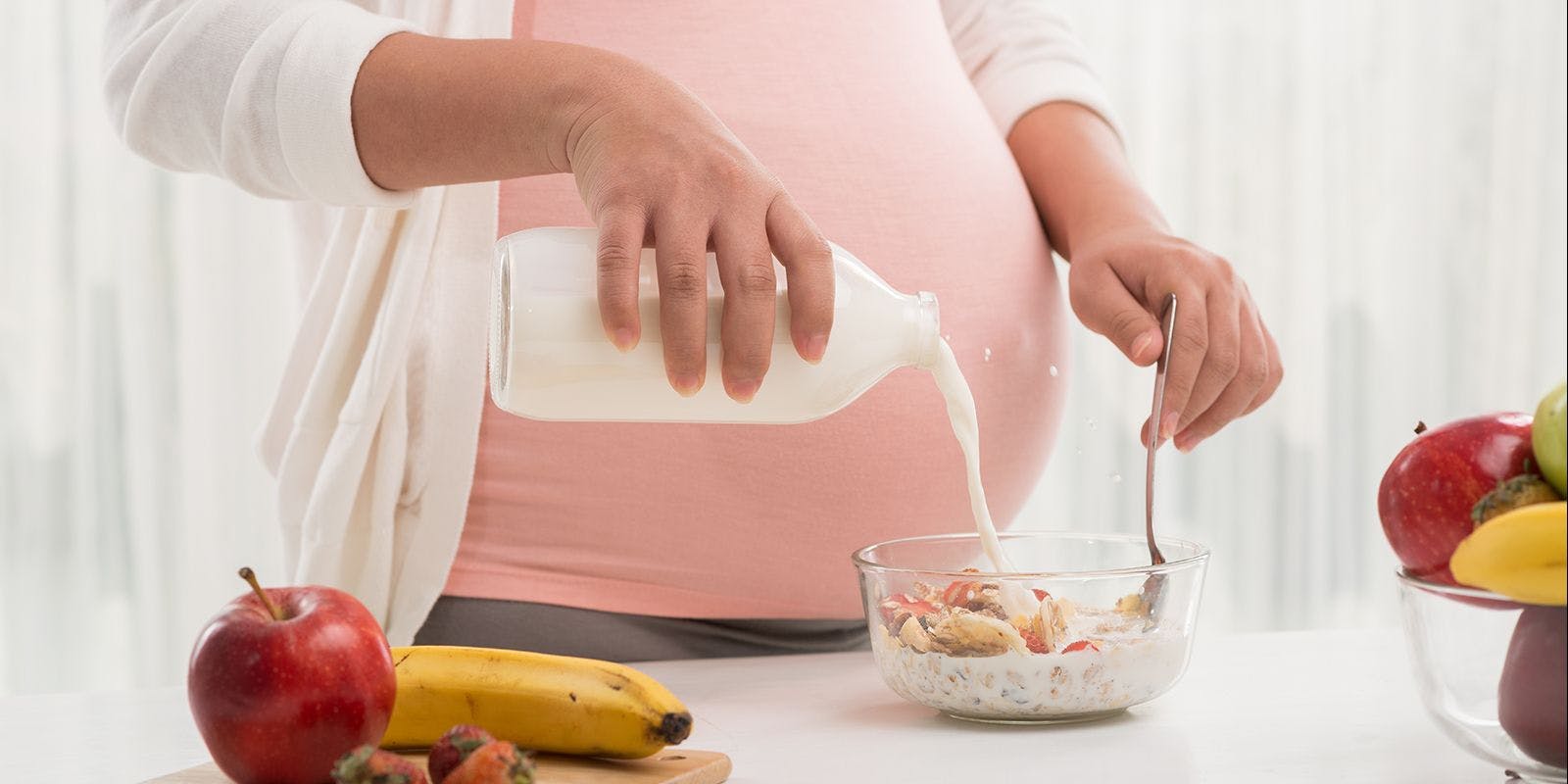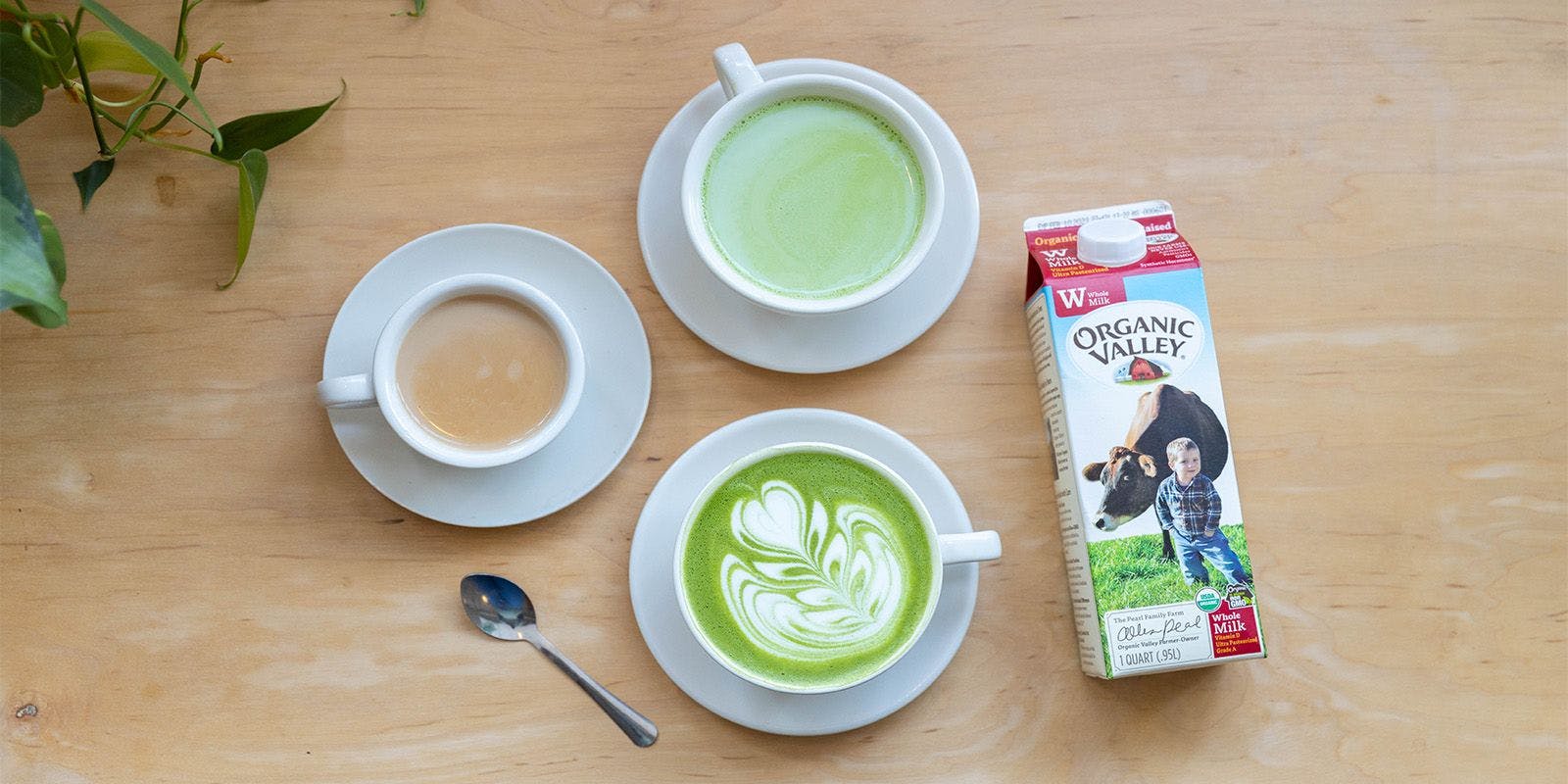
Food
When Can My Baby Have Eggs?
If your pediatrician or health care provider has mentioned that you can start introducing solid foods to your baby, it is common to have some mixed emotions. On one hand, reaching this milestone is an exciting time for the entire family. It is so much fun watching a baby taste sweet applesauce for the first time and opening her mouth for more.
On the other hand, many families do not get a lot of guidance around transitioning to solid foods and, therefore, may feel a little stressed deciding what to feed their child and when.
Eggs bring on another challenge, as the recommendations for introducing these protein powerhouses has changed more than once.
As a registered dietitian, I think that eggs are one of the healthiest foods you can offer your baby, assuming she does not have a diagnosed egg allergy. This article will break down when you can consider transitioning baby to solid foods, how and when baby can eat eggs and tips for incorporating eggs into her diet.
When Can I Transition to Solid Foods?
While every baby is different, most get the green-light to start solids between 4 and 6 months of age. The permission to start introducing solid foods is based on your baby’s developmental milestones and not simply on a date on a calendar, so always consult with your health care provider before beginning to introduce new foods.
Some developmental signs that indicate baby may be ready to try solid foods include:
- Baby is able to sit upright without being supported.
- Baby shows interest in food when a caregiver is eating.
- Baby can hold her head up by herself.
- Baby no longer has the tongue thrust reflex that she had when she was younger and was breast or bottle feeding.
The medical literature suggests that introducing solid foods too early may lead to increased risk of chronic disease, as well as increased risk of diarrhea, as baby’s gut may not be fully developed. On the other hand, introducing solids too late may increase feeding difficulties. Your health care provider will encourage you to set up the high chair when the time is right.
When Can I Feed My Baby Eggs?
In the past, families were told to avoid certain potentially allergenic foods like eggs until their baby turns 2 years old. However, these recommendations have recently taken a 180-degree turn.
The health care community now suggests feeding little ones highly allergenic foods like eggs, peanuts and shellfish early and often, as this has been shown to actually reduce the risk and protect your baby from developing a food allergy down the road. In fact, the American Academy of Allergy Asthma and Immunology states that delaying these foods may increase your baby’s risk of developing allergies.
However, if your baby has an egg protein allergy confirmed by a health care provider, avoid feeding your child eggs and egg-containing products.

What to Look for
Eggs are an affordable food that are packed with protein, antioxidants, healthy fats and important vitamins and minerals that support the development of baby’s eyes and brain. If you’ve walked down the egg aisle in your grocery store lately, you know that the simple act of buying a carton of eggs is not actually that simple! Many varieties are available, and not all eggs are created equal.
When shopping for your baby or toddler, here are some tips to keep in mind.
Choose eggs that provide additional omega-3 fatty acids
Omega-3 fatty acids have been shown to play a positive role in brain development in young children. Certain eggs contain higher levels of this fatty acid because the chickens are fed a diet rich in flax seeds — a natural source of omega-3 fatty acids. Choosing omega-3-rich eggs is a simple way to ensure your baby is receiving this important nutrient that is unfortunately missing in many diets.
What Are Certified Organic Eggs?
Organic hens are never given antibiotics, synthetic hormones, and their feed is produced without toxic pesticides and GMOs. (What does certified organic mean?)
In addition, Organic Valley hens enjoy spending time on organic pastures exhibiting their natural behaviors. They are Free to Forage™, scratch, peck, socialize and dust-bathe outside — and healthy hens will lay nutrient-rich eggs that are a great choice for your family.
How to Incorporate Eggs into Baby’s Diet
Clearly an eggs Benedict with a side salad is not the way to go when introducing new foods to your baby or toddler.
Make sure the entire egg is fully cooked before offering it to your child — no over-medium or sunny-side up for baby! They can enjoy pureed hard-boiled egg or scrambled egg as a first food. You may need to add some formula or breast milk to get the puree to the appropriate consistency. If you are baby-led-weaning, you can serve your baby an egg yolk from a hard-boiled egg for a soft protein source that she will easily tolerate.
As your baby gets older, you can feed her pieces of a hard-boiled egg or scrambled egg as a finger food. Eggs can also be added to a pureed meal to provide some protein and egg exposure.
Bottom Line
Eggs are an important food to include in your child’s diet and can be introduced as early as she starts eating solid foods. From possibly reducing the risk of developing an egg allergy to providing important brain-boosting nutrients like omega-3 fatty acids and choline, eggs are a perfect food to feed your little one during these important developmental years.
Check out our Store Locator to find where you can buy Organic Valley eggs near you.
Additional Information:
“What you need to know about the new guidelines for the diagnosis and management of food allergy in the U.S.” American Academy of Pediatrics and the American Academy of Allergy, Asthma and Immunology, 2011.
Paina, M., Simons, E. “Two-step egg introduction for prevention of egg allergy in high-risk infants with exzema (PETIT): a randomized, double-blind, placebo-controlled trial.” Pediatrics. American Academy of Pediatrics. Dec. 2017, 140 (Supplement 3) S193-S194.
Lauren Manaker is an award-winning registered dietitian and book author. After spending over 15 years working in health care and industry, she started a consulting business focusing on reproductive, pediatric and women’s health. Lauren resides in Charleston, South Carolina, with her husband and young daughter. In her spare time, she can be found enjoying an outdoor oyster roast in the cooler months, doing anything on the water in the warmer months, and practicing yoga year-round.
Related Articles
- Tags:
- organic nutrition,
- family & kids



















